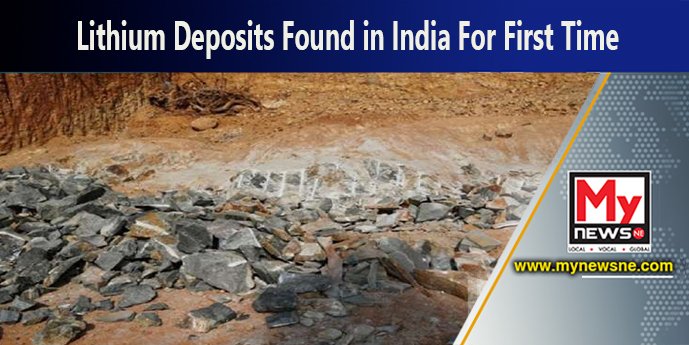First time in India! Lithium deposits found in J&K
Guwahati: The Union Government on Thursday said that 5.9 million tonnes of lithium deposits have been discovered for the first time in the nation in Jammu and Kashmir.
Non-ferrous metal lithium is one of the essential elements of EV batteries.
“Geological Survey of India for the first time established Lithium inferred resources (G3) of 5.9 million tonnes in the Salal-Haimana area of the Reasi district of Jammu and Kashmir,” the Ministry of Mines said on Thursday.
It further stated that state governments received 51 mineral blocks, including gold and lithium, for their various jurisdictions.
“Out of these 51 mineral blocks, 5 blocks pertain to gold and other blocks pertain to commodities like potash, molybdenum, base metals etc. spread across 11 states of Jammu and Kashmir (UT), Andhra Pradesh, Chhattisgarh, Gujarat, Jharkhand, Karnataka, Madhya Pradesh, Odisha, Rajasthan, Tamil Nadu, and Telangana,” the ministry added.
The blocks were made based on the work done by GSI from the field seasons of 2018–19 up until this point.
In addition to this, 17 reports of coal and lignite totaling 7897 million tonnes were given to the coal ministry.
During the meeting, seven publications on various subjects and intervention areas that GSI works in were also released.
“The proposed Annual Programme for the ensuing Field Season 2023-24 was presented and discussed during the meeting. During the ensuing year 2023-24, GSI is taking up 966 programmes comprising 318 mineral exploration projects including 12 marine mineral investigation projects,” the ministry further said.
The Geological Survey of India has developed 16 projects on fertiliser minerals and 115 projects on strategic and important minerals.
“55 programmes on geoinformatics, 140 programmes on fundamental and multidisciplinary geosciences, and 155 programs for training and institutional capacity building have also been taken up,” the Mines ministry stated.
The Geological Survey of India (GSI) was founded in 1851 in order to locate coal resources for the Railways. The Geoscience Information Institute (GSI) has developed over the years into not only a national clearinghouse for geoscience data but also a geoscientific organisation of repute on a global scale.
Its primary responsibilities include the creation and updating of national geoscientific data and the evaluation of mineral resources. These goals are accomplished through fieldwork, airborne, marine, and ground surveys, as well as mineral prospecting, multidisciplinary geoscientific, geo-technical, geo-environmental, and natural hazards studies, glaciology, seismo-tectonic research, and basic science work.
The primary responsibility of GSI is to provide objective, unbiased, and current geological expertise and geoscientific information of all types, with an emphasis on societal, commercial, and economic needs.

